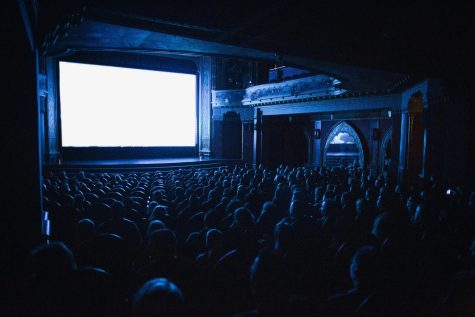Op-Ed: The French Dispatch is a marvel within its own niche
November 22, 2021
Way back in 2019, when this hellish pandemic was only a science fiction concept that would never happen in real life, the first trailer for Wes Anderson’s latest film “The French Dispatch” was dropped. It included all of Anderson’s signature touches, his favorite actors, his trademark ennui and eye for twee aestheticism, and it looked exquisite.
After being delayed by that aforementioned pandemic, and after touring a few select theaters in the US, “The French Dispatch” has finally arrived on the screens of the average Amarillo resident. At long last, the newest pastel-colored romp through a life-sized boulangerie shop-window doll house could be enjoyed by the people who like that sort of thing.
Enjoy it I did.
As mentioned above, the cast is “Knives Out” levels of stacked. Benicio del Toro, Adrien Brody, Tilda Swinton, Frances McDormand, Timothée Chalamet, Jeffrey Wright, Edward Norton, William Dafoe, Bill Murray and Owen Wilson to name a few. Some of these actors are like the regulars that come into Anderson’s diner every time they can, but “Dispatch” introduces a few newer additions to the Wes Anderson cinematic repertoire and some, like Lyna Khoudri, are stand-outs in the crowd of famous faces.
Back when I was a young teenager, Anderson’s “Fantastic Mr. Fox” film showed me that movies needn’t pander to the audience’s expectations, nor should they stray too far from being completely enveloped in gorgeous, stylistic expressiveness if they so desire. Anderson’s unique and unapologetic handwriting was, at first, slightly off-putting, but his evident infatuation with the art form brought with it new appreciation within myself for the beauty of a thoroughly beloved, handcrafted work of cinema.
“The French Dispatch” is Wes Anderson at his most Wes Anderson. After his work on “Fantastic Mr. Fox,” his style became more obsessive, more intricate, more abashedly artificial. He relied less on the moment and more on his team’s ability to execute the perfect scene, right down to the color of the light reflecting off of a champagne glass. With this strict adherence to the practical creation of a sublime and picturesque universe, comes at once a heartbreakingly melancholic yearning for such an adorable world, and a deep appreciation for the one that has inspired it.
“Dispatch” is not Anderson’s best film. It is missing the innocent heart of “Moonrise Kingdom,” the outlandishness of “Isle of Dogs,” the inherent morals of “Grand Budapest Hotel.” Yet it is, in its own way, a perfect movie, if that movie is trying to give us a window into the almost extinct art of the bohemian journalist. It’s a tone poem, whose notes are paintings, politics and police meals.
The unique structure, one mirroring an issue of this fictional journal, doesn’t let us fully cling to these characters. There’s no real development or overarching moral. It is, instead, a nostalgic, introspective piece made out of little profound pieces, which come together to form a wonderful, magnetic whole. One that, I think, is worth the price of admission. I like that sort of thing, though.
















